As we enter another new year, Just Drinks has spoken to senior figures at some of the wine industry’s biggest names to get the inside track on how they see 2024 taking shape.
Hear from Tim Ford, the CEO of Treasury Wine Estates in Australia, David Babich, the chief executive of Babich Wines in New Zealand, Patricio Arenas, CEO of Grupo Valdivieso in Chile, Pedro Herane, the head of Chile-based VSPT Wine Group, John Colley, CEO of Majestic Wine in Europe, Ants Rixon, CEO of Enotria&Coe in the UK and César Sánchez Moral, CEO of González Byass in Spain.
Tim Ford, managing director of Treasury Wine Estates, Australia
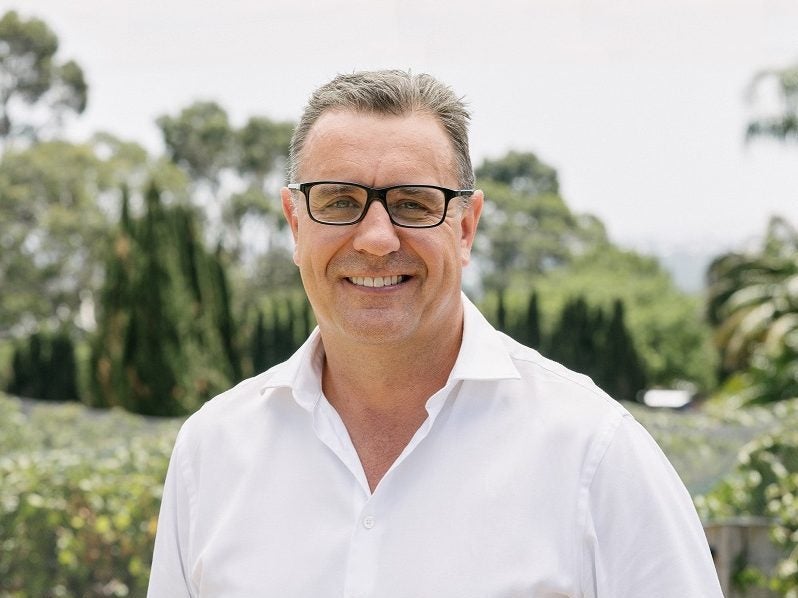
Just Drinks: What are the company’s best opportunities for sales growth in 2024?
Tim Ford: Our focus remains on growing the premium and luxury wine market and we’ve had a productive 12 months building our portfolio including the recent acquisition of luxury US wine business, Daou Vineyards.
In F24, we remain well-positioned to deliver growth in line with our long-term ambition and continued EBITS margin expansion.
JD: What are the biggest ongoing supply chain issues you are facing and how will you seek to combat them?
Ford: Whilst supply costs remain elevated, pleasingly stability is returning across most of the supply chain. The reliability of global shipping schedules continues to improve, and extended vessel delays are becoming less frequent, creating more certainty in our overall planning. We are focused on managing our costs and working closely with our key supply partners to ensure smooth and uninterrupted delivery to our valued customers.
JD: How do you see consumer demand across your geographic markets next year?
Ford: We’re still seeing the premiumisation trend playing out for the wine category online, on-premise and in bricks-and-mortar retailers – people are buying less but better.
History tells us the wine category is relatively resilient in times of economic uncertainty, and a major trend from the pandemic has been the shift to e-commerce and digital engagement driven by in-home consumption, and consumers prioritising speed and convenience.
In the UK, in reaction to the challenging financial environment, in all categories other than the wine category, we are seeing consumers choose own-brand products as we see price points increase. Within the wine category, however, we are seeing the allegiance that consumers have to our iconic brands and the continued purchase of our products.
JD: What are your hopes for China trade in 2024?
Ford: We’ve been connected to China since Penfolds first started exporting wine from the Barossa in South Australia to Shanghai – and we have maintained our presence there, with around 100 team members in our Shanghai office and continued involvement in local consumer and trade exhibitions.
Penfolds has been exploring making quality luxury wine in China and more recently launched the first China Winemaking Trial wine, following the success of other locally sourced Penfolds wines.
We welcome the agreement for an expedited pathway forward to allow our Australian brands and wines to be sold in the Chinese market once more and we’re optimistic about the future of our business as the wine category continues to grow and evolve in China.
JD: What consumer trends do you expect to drive your innovation and NPD pipeline in the next twelve months?
Ford: We’re excited by the potential for low- and no-alcohol wine to continue to improve and be a popular choice for consumers looking to reduce their alcohol intake.
We’ve committed to investing around $10m in research and development in the low- and no-alcohol category including an in-house, state-of-the-art, low-alcohol production facility in the Barossa Valley, recognising the potential of the category to offer wine lovers more choice while still enjoying great flavour.
In addition to our Matua Lighter and Wolf Blass Zero products, in the past year, we also launched Squealing Pig Zero alongside our existing lower-alcohol sparkling and rosé products and Pepperjack mid-strength Shiraz. We look forward to the potential to bring more of these no-alcohol and lighter varieties to the UK, alongside Wolfblass Zero which is already available.
JD: How will TWE use AI next year?
Ford: AI opens up a world of opportunities for us, particularly in the agricultural space. Right now, I’m most excited about the potential for AI to continue to improve safety across our business through automation and progress our sustainability efforts including reducing water wastage.
Through our partnership with Australian startup The Yield, we’re using AI with more than 20 years of our traditional crop insights to generate precise future weather forecasts for harvest and yield. This approach enables us to respond to the impacts of climate change and implement mitigation plans, ensuring quality is not compromised.
I’m yet to see AI successfully replicate culture – it’s an integral part of any company and any team and I am proud of our TWE DNA and the culture that we’ve built. I don’t think that can be easily replaced by robots.
JD: On which key ESG issues do you expect to increase investment in 2024 and why?
Ford: While the environmental and governance components of ESG are relatively well developed, the next frontier will be the social aspect of doing business. We know from international reputation research that the employer is the most trusted entity in people’s lives – more than governments or the media.
Combined with changing expectations from consumers, customers, and other stakeholders, it’s a compelling case to create meaningful impact in areas like inclusion, equity and diversity, or the human rights of workers throughout the supply chain.
JD: Overall, what are the biggest challenges you think the company will face? Conversely, do you have reasons for optimism in 2024 and why?
Ford: I’m optimistic and excited heading into 2024. As a business, we’ve put in a lot of hard work and effort to build our luxury and premium wine portfolio and we’re in a good place to grow this globally. Our team members are feeling more connected than before with time spent together in offices and at sites. Additionally, now that travel is back on the cards, we can once again meet in person with our customers and partners to continue to grow these important relationships.
Climate change remains a key concern for us, like many other businesses particularly in the agricultural space. However, I am pleased with the progress we’ve made and look forward to how we’ll continue to strive towards 100% renewable electricity by the end of 2024 and net zero by 2030 for the remainder of our Scope 1 emissions.
David Babich, CEO of Babich Wines, New Zealand
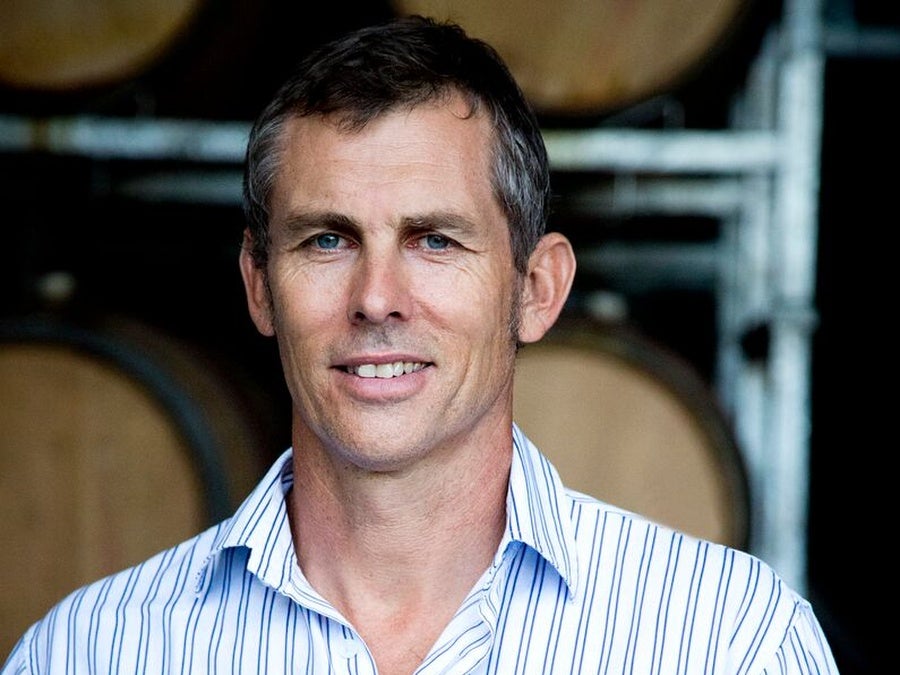
JD: What are Babich’s best opportunities for sales growth in 2024? Do you expect to see volume growth next year?
David Babich: I think overall 2024 could be a tough year, with the cost of living continuing to impact disposable spend. We still think we can manage some continuation of growth in the UK, US and Canada, but it will be challenging.
JD: How do you think cost inflation will impact your business in the coming 12 months?
Babich: We continue to see costs increase at 5% to 10% across most areas but we also note this is slowing. We have some good offsets, in particular, logistics costs (ocean freight) have come down and the New Zealand dollar has devalued (over the past year) against many of our trading currencies, so, to date, we have managed to hold our prices. We review pricing in the first half of 2024 but currently do not have price increases planned.
JD: What are the biggest ongoing supply chain issues you are facing at Babich and how will you seek to resolve/combat them?
Babich: Over 2022 and 2023 New Zealand in general showed an exposure to open ocean shipping, in that the volume available sharply decreased. NZ is an export nation, so this is a macro concern and it certainly impacted our ability to deliver wine to our customers overseas in a timely manner. With the (major global) ports overcoming their congestion, we now have services very similar to pre-Covid but it is a wake-up call for us and for NZ. We have three international warehouses (China, Europe and US) so we can use these to cover shortfalls caused by logistics – but it is not an ongoing or complete solution.
JD: How do you see consumer demand across your geographic markets next year?
Babich: As noted, I think 2024 could be fairly soft as consumer demand (and spend) decreases. I think this will occur across most, if not all markets.
It’s possible that price segments where we sell our main wines will benefit from trading down. We saw that during the global financial crisis where the US$20+ buyer traded down to the $10-15 price band and our sales grew. I think as a general comment, consumers will be looking to trade down during 2024 but that might mean they trade into our segment on balance (or not, we will see). I think the net impact of this will vary significantly by market.
JD: In which markets do you see the best opportunities for growth for your business and category?
Babich: The USA and Canada are both good (but challenging) markets for growth. We have excellent distributors in both markets so we are optimistic we can do well even in difficult times. The UK is under a lot of pressure with cost increases causing shelf-price increases, but, again, we have good distribution and we work closely with our customers, so hopefully we can come through ok.
JD: How will Babich use AI next year? Longer term, how might AI benefit your business?
Babich: We are looking to use it more in report development and report writing. We are trialing AI for market sales planning but more for baseline information rather than in-depth strategic. I think AI can be useful to reduce some of the analysis work for planning but, in the end, a human needs to make the key decisions. One issue with AI is it accepts all feed information as correct but it might not be.
JD: Overall, what are the biggest challenges you think the company will face? Conversely, do you have reasons for optimism about 2024 and why?
Babich: I think the big challenge relates to the economic conditions facing many key markets we trade into. These have serious headwinds and I expect they will make 2024 a difficult year. On the positive side, we are in the wine business – how bad can it be at the end of the day!
Patricio Arenas – CEO of Grupo Valdivieso, Chile
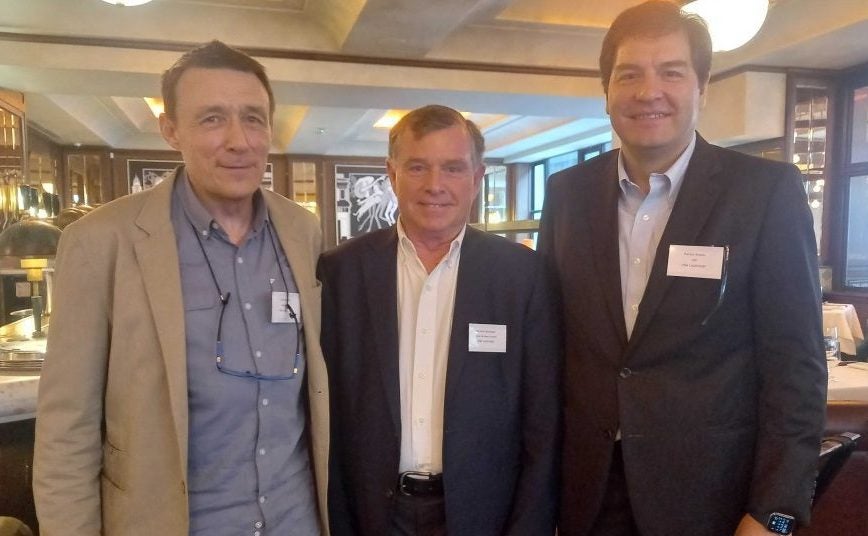
Just Drinks: What are Grupo Valdivieso’s best opportunities for sales growth in 2024? Do you expect to see volume growth?
Patricio Arenas: After a very challenging 2023, next year has some signs of improvement with expected growth in the premium segments – where our Caballo Loco brand has built a high-quality reputation and a strong distribution network. We are also seeing a better outlook for our sparkling wines in international markets.
A more challenging situation will be faced by the mid-priced, still-wine segments where we expect the market to drop slightly next year.
We have been focused on the target of being a global brand and opening new markets, and that has been a growth source for our still wines, sparkling wines and liquors.
The renewed development of our innovation pipeline has made us reach new customers with products that are directed towards their needs with innovative sustainable packaging across our entire portfolio.
As a summary, we expect to see both volume and value growth next year, based on the quality of our products, focus on the consumer and strong teamwork with our worldwide partners.
JD: How do you think cost inflation will impact Grupo Valdivieso in the coming 12 months? What steps are you taking to mitigate the impact?
Arenas: Inflation has been one of the biggest issues we have faced in the last years. Luckily, the pressure of rising costs is decreasing in the latest months and we expect to go back to years with normal inflation in the future. Delivering wines with a great quality-price ratio at every price has been part of our brand essence for more than 100 years so we have made a huge effort to try to keep our costs under control to maintain prices, and we expect to continue doing our best to support to our clients in the near future. We know that consumers will value this work and feel this attribute in our products.
JD: How do you see consumer demand across your geographic markets next year?
Arenas: We expect the key trends for consumers around the world to be a growth in consumption by a younger – more engaged – consumer, with a stronger growth of the sparkling wine market than still wine. Premium wines should continue performing better than their lower-priced counterparts and we expect to see an even stronger trend towards sustainability. Price elasticity will be present in the markets but we have to be careful with pricing strategies to set our products where they perform strongly.
JD: In which markets do you see the best opportunities for growth for your business and category?
Arenas: Growth for Valdivieso during next year will be driven especially by markets such as the US, Canada, Brazil, Mexico, Netherlands, Korea and the development of a wider worldwide distribution network. Even with the difficulties of this year, we were able to achieve multiple new partners around the world for our still and sparkling wines that will support an important part of our growth for 2024.
JD: Do you have specific plans for [subsidiary] Licores Mitjans in 2024?
Arenas: The growth for Licores Mitjans for 2024 is planned in Latin American countries, where the brand has been present for many years. We expect to regain growth in these markets with our long-term partners and some new partners in Peru, Brazil, Mexico and others.
JD: How will Grupo Valdivieso use AI next year?
Arenas: We are doing some research focused on the use of AI on our planning processes, particularly on demand planning. Besides that, we expect AI to be very useful in the future to model and predict consumer behaviour, especially focused on innovations that can be completely new to them and, due to that, quite unpredictable.
JD: Do you have reasons for optimism in 2024 and why?
Arenas: Next year should be very challenging, for sure, but we have good reasons to expect good growth in our current and, especially, new markets. Our proposal of quality is at its best, with outstanding recognition, the new harvest looks promising, our innovation plan to develop products for new wine consumers is in place and our planning process improves every day.
Pedro Herane, CEO of VSPT Wine Group, Chile
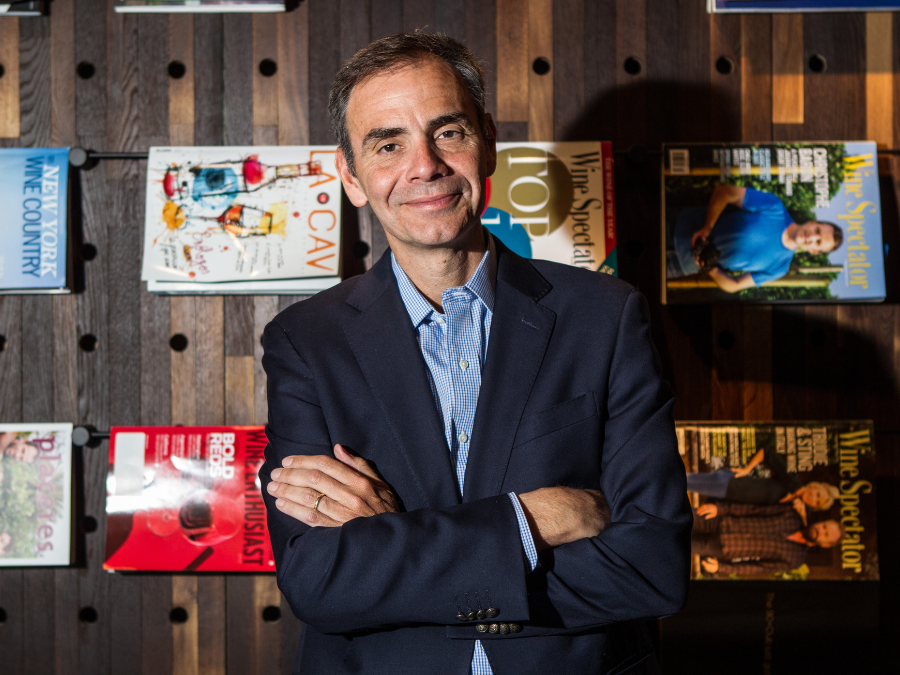
Just Drinks: How do you think cost inflation will impact VSPT in the coming 12 months?
Pedro Herane: I have been in the wine industry for almost 14 years and in this position for 11. This is the worst crisis that we have had – not as a company but as a global industry, in terms of volume, cost, inflationary uncertainties.
VSPT used to have quite a nice business in Israel with a kosher wine, and now it’s gone. We used to have a nice business in Ukraine, which has also gone. China was very important for us and today we are selling less than 50% of previous volumes.
Labour inflation has been very high because of inflation in our markets – inflation in Argentina, for example, is around 150% per year. In Chile, our inflation is around 3-4% but it has been up at around 12%. In 2024, inflation is still going to be an issue, especially in Argentina.
We have a lot of cost pressure in our vineyards; the price of the bottles is also very high because of labor and energy costs.
To maintain cost stability in 2024, in my opinion, is going to be less challenging than 2023 and 2022 but still going to be very, very difficult.
JD: What are your biggest supply chain issues and how will you combat these?
Herane: Today we don't have a lot of supply issues. 2022 was extremely difficult but now things are normalising back to 2018 levels.
What is really difficult today for the wine industry is high inventory around the world. Everyone is trying to reduce pricing, do more promotion. The wine industry is suffering a lot in terms of economics and we don’t have a lot of clarity if 2024 is going to be the year everything returns to normal.
For example, in Europe, we see a lot of suppliers from the Old World trying to put their products into more markets, because they have seen a significant decline in their own market. Wine consumption is going down, but production remains stable, so everyone needs to sell their products in different markets.
This will have an impact on economics and supply for every producer around the world. Especially for companies like us that play all over the world. For table wines especially it is becoming very, very difficult.
JD: Where do you see opportunities for growth in 2024?
Herane: We are putting all of our energy into our new subsidiaries [in the US and China]. We created those subsidiaries because we saw big opportunities and hopefully we will start seeing better results in 2024 – especially for premium wines. I'm very optimistic. Obviously, the market is not helping. But I’m very optimistic about my people and also about our brands, and about the process.
JD: Do you have reasons to be optimistic for 2024?
Herane: In my position, we should always be optimistic and I need to transmit this to myself and to my organisation. Obviously, there is a lot of uncertainty regarding cost, consumption, geopolitical situations… I was in the US last week, where wine consumption is declining.
We must focus on the fundamentals. Organisational fundamentals, like our sustainable programme, keeping people at the centre and consumer fundamentals – trying to understand what consumers want and the best way to develop our brands.
If we keep doing the right things in terms of pillars and fundamentals, in 2024 and in the long run our company will benefit. This is what I am trying to do: to focus on people, branding and route to market.
John Colley, CEO of Majestic Wine, UK
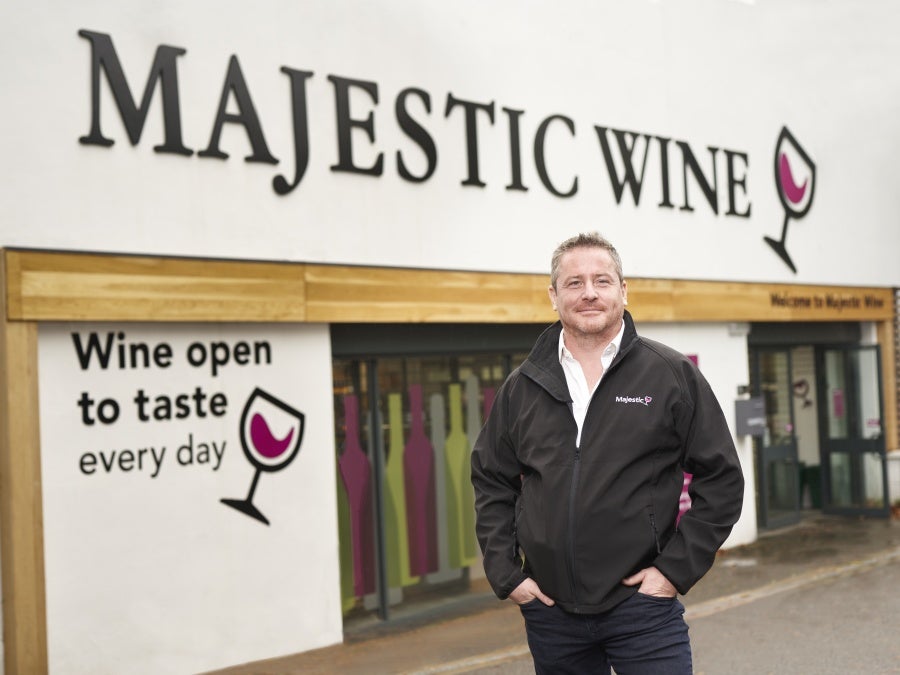
Just Drinks: What are Majestic Wine’s best opportunities for sales in 2024?
Colley: For us, it’s about focusing on the same channels that have driven our growth since we moved back into private ownership in 2019: attracting new customers, opening new stores, and growing our B2B arm, Majestic Commercial. We’re aiming to open an average of one store per month over the next few years, with a strong pipeline in place for 2024.
In the on-premise, we now supply more than 2,300 pubs, bars, restaurants and hotels across the UK and we can see plenty of headroom for further growth in 2024 and beyond. Our ultimate aim is to become one of the biggest suppliers to the on-trade and hospitality sectors in the UK and we expect 2024 to be another strong year for Majestic Commercial.
JD: How do you think cost inflation will impact your business in the coming 12 months?
Colley: Inflation eased towards the end of 2023 but input costs continue to be high across the supply chain. We have been in business for more than 40 years and have developed very strong relationships with our suppliers, which means we can take an honest, collaborative approach with winemakers around the cost pressures we are all facing. That puts us in a strong position to mitigate those and keep prices as low as we can for our customers.
August’s rise in alcohol duty was the steepest for almost 50 years – that created further unhelpful inflationary pressure and forced us and many others to pass on some of those cost increases to customers.
JD: To what extent do you anticipate some price elasticity next year – and how will you react to that?
Colley: Despite a lot of economic and political uncertainty, British consumers have once again proven to be pretty resilient. As you’d probably expect, we have seen some of our customers trading down or putting one less bottle than usual in their baskets but, for us, it’s not been a case of reacting to that trading landscape – we were already well set up to adapt and thrive within it.
A key part of our strategy since being acquired by Fortress in 2019 has been to re-establish a genuinely market-leading range, both in terms of its quality and breadth. Part of that has been a focus on innovation and uniqueness, bringing in wines from ‘off the beaten track’ regions like Greece, Hungary and Austria, where there is some incredible value for money to be found.
JD: On which key ESG issues do you expect to increase investment at Majestic Wine in 2024 and why?
Colley: We pledged to transform our fleet of more than 200 vans from diesel to fully electric vehicles by 2030, so this will be a key area of investment in 2024. We introduced the first tranche of EVs before Christmas and 35 of them will be on the road before the end of our current financial year. Because each of our stores has its own dedicated van delivering to local retail and on-trade customers daily, this will be a huge step-change for the business. Completing the switch to a fully electric fleet will strip out 5m diesel-powered road miles and 1.2m kg of CO2 emissions every year, which is huge.
We will also ramp up our Diversity in Wine Scholarship – a programme that we are hugely proud of at Majestic. This offers anyone from Black, Asian, Minority Ethnic, or any other diverse background the opportunity to obtain a WSET Level 2 qualification free of charge, with no obligation to work for Majestic upon completion of the course. We’ve helped more than 50 people obtain WSET qualifications since we launched the programme two years ago, and we have committed further investment to that initiative in 2024.
JD: What are the biggest challenges you think Majestic will face in 2024 and do you have reasons for optimism?
Colley: We have a saying we like to use internally at Majestic about ‘controlling the controllables’ – but the biggest challenge for us and a lot of other businesses at the moment is the sheer volume of things happening outside of our control.
We don’t know what the Treasury will do next on alcohol duty come the Spring Budget; we don’t know how energy prices are going to change; we don’t know how the weather will impact wine production; we don’t know how the wars in Ukraine and Gaza are going to develop. These are all things that we can prepare for, to a degree, but cannot directly influence.
All we can do as a business is ensure we are on top of our game and ready to handle whatever comes next, which I think we are. We have an award-winning range; all of our shops are profitable – and we’re opening more; our Majestic Commercial business is growing at a rapid pace; we have more customers than ever; and we have the most dedicated, hard-working, knowledgeable team in UK retail at the heart of all the brilliant things we do. The trading environment will continue to be challenging, I’m sure, but having all of those things in our armoury puts us in a strong position to deliver long-term growth.
Ants Rixon, CEO of Enotria&Coe, UK
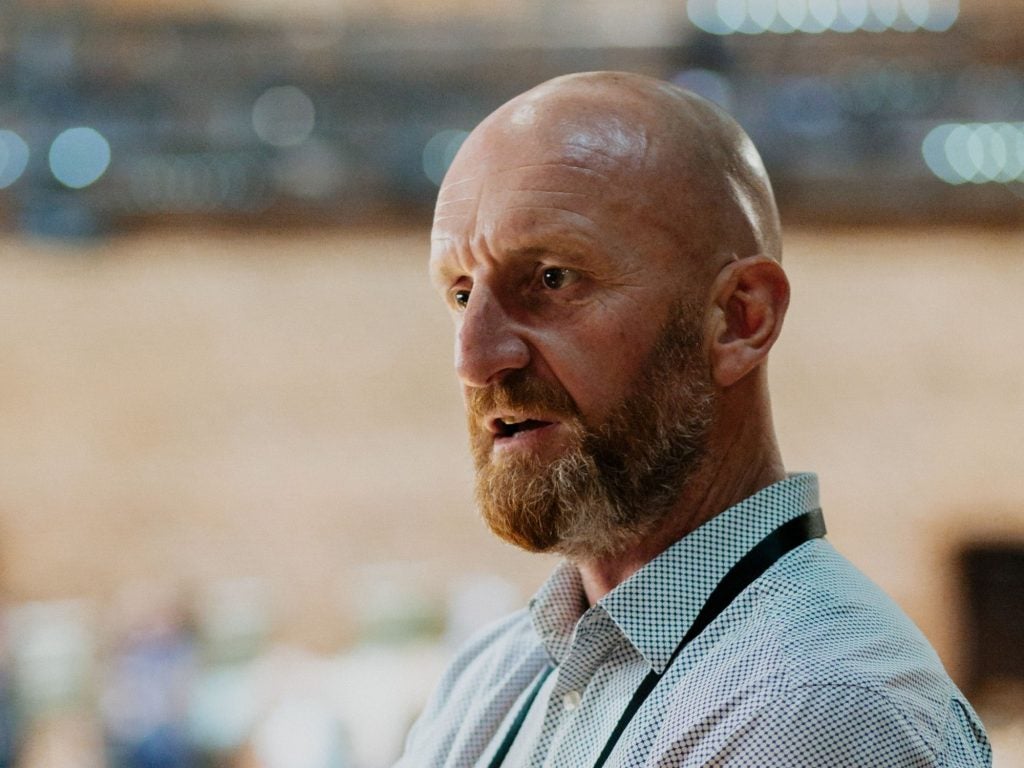
Just Drinks: What are Enotria & Coe's best opportunities for sales growth in 2024? Do you expect to see volume growth next year?
Ants Rixon: Given the market challenges that we saw during the Christmas strikes at the end of last year and the effects this has had on the trade in 2023, we made a significant, strategic decision in Q2 to move away from providing a composite solution, redirecting Enotria&Coe back to its roots as a premium wines and spirits specialist.
Following the move away from being a composite solution provider, we expect in 2024 to see wines and spirits growth in London and the South-East especially, with continued stabilisation elsewhere.
There are significant opportunities in premium across the UK. We are therefore increasing our focus on fine wine by investing in the development of our dedicated Fine Wine room for tasting and storage within our cellars. We are also launching Fine Wine workshops for our customers in 2024 to support them in increasing their fine wine sales.
JD: What are the biggest ongoing supply chain issues you are facing and how will you seek to resolve/combat them?
Rixon: Stabilisation of international shipping means that we expect to become more predictable in the year ahead (although I hate to harp back to Covid, lead times have been stretched post the pandemic as the market recovers). We’re in the process of retendering our global shipping contracts and expect improvement to our supply chain going forward.
JD: How do you see consumer demand across your geographic markets next year?
Rixon: Consumers will moderate their spending, prioritising their spend, which will force outlets to compete for this spending by providing a great experience. With consumers continuing to prefer to pay for better quality, over quantity, we’re anticipating continued growth in the premium sector next year, mimicking our customer base, albeit in a tough market environment.
JD: What consumer trends do you expect to drive your innovation pipeline in the next twelve months?
Rixon: Following the duty increases in August 2023 and in response to the growing trend for lower alcohol, we expect fresher, lighter wines from cooler climates to continue to be popular, such as Rieslings from Germany and Vinho Verdes from Portugal’s northern coast. By the very nature of these wines, they are lower alcohol and therefore incur lower duty. Naturally lower alcohol wines are preferable to No and Low products where intervention has been required to reduce or strip out the alcohol. Flavour is maximised, without losing quality.
JD: You described last year as 'pivotal' in terms of ESG. On which key ESG issues do you expect to increase investment in 2024 and why?
Rixon: We are proud to be leading the conversation on sustainability and sharing best practice with both our producers and customers.
As part of our net zero 2030 commitment, we set our producers challenging goals around climate change and carbon reduction, as we recognised that for us to reduce our Scope 3 emissions, we needed our producers to reduce their carbon emissions also. These goals encompassed a commitment to procure renewable energy, send zero waste to landfill, to reduce single-use plastic and to invest in sustainable packaging.
Again this year, we have issued a sustainability questionnaire, designed to measure the improvements that had been made across our supply chain and to showcase the best in class producers within our portfolio. We intend to launch the results early in the new year.
Bearing all of the above in mind, our top three priorities for 2024 are to integrate sustainability goals into core business processes; identify Scope 3 mapping and measuring solutions and set science-based SBTi reduction targets; and continue to develop sustainable packaging goals and measure supplier adoption.
César Sánchez Moral, CEO of González Byass, Spain
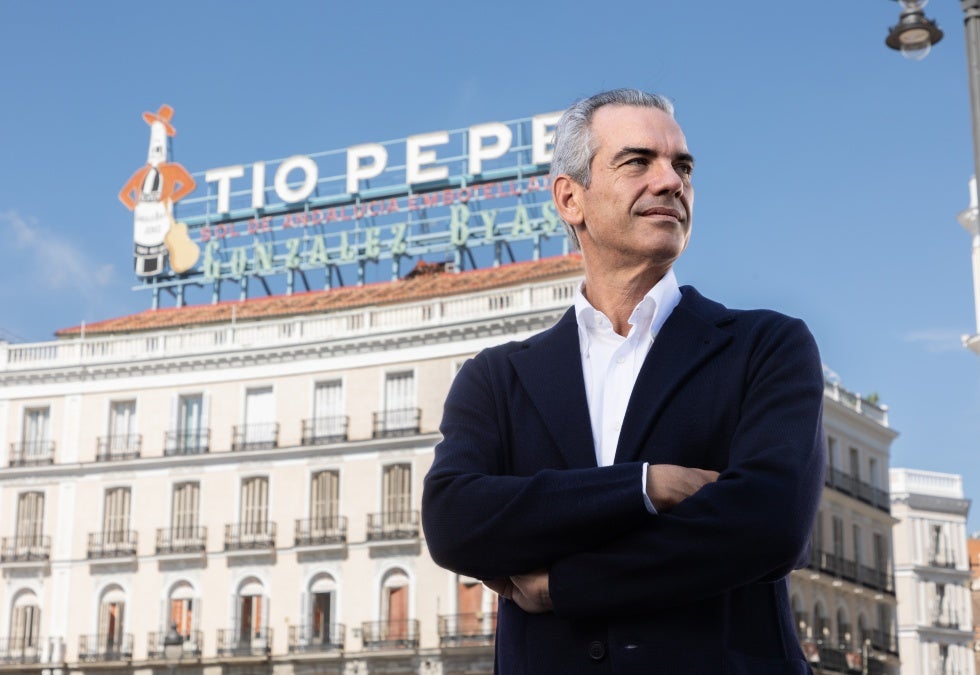
JD: What are the company’s best opportunities for sales growth in 2024? Do you expect to see volume growth next year?
César Sánchez Moral: Our success in Mexico, particularly with the Presidente brand, reflects ongoing investments in marketing, innovation, and distribution. Internationally, our premium Rioja, Beronia, is thriving, gaining substantial market share in the UK, Spain, the US, and Mexico. This success is attributed to our commitment to sustainability, wine quality, and strategic marketing efforts.
In the spirits category, we anticipate strong demand in Asia for Nomad whisky, aged in sherry casks in Jerez, with a new variety featuring Irish whisky. Our London No 1 gin brand is also poised for global interest as our international presence continues to expand.
JD: How do you think cost inflation will impact your business in the coming 12 months?
CSM: Inflation remains a significant concern for the next 12 months. While prices for dry goods like glass, cartons, and corks are showing signs of stabilisation, a brief worldwide vintage shortage is once again exerting price pressure on our business. Additionally, there is renewed international interest in certain varieties such as Palomino (Sherry), Albariño (Rías Baixas), Mexican Nebbiolo (Guadalupe Valley), Organic Carmenere (Apalta, Chile), and key white varietals in Casablanca Valley, Chile, or Somontano (Spanish Pyrenees).
To address these challenges, we have implemented efficiency programmes to optimise our dry goods and other inputs. Continued investments in our vineyards and grapes are crucial to mitigating the impact of inflation. However, our unwavering commitment to quality makes it challenging to fully hedge against grape price increases in key areas. As a result, we plan to implement limited price increases where grape prices continue to rise in 2023.
JD: How do you see consumer demand across your geographic markets next year?
CSM: Since January 2023, we have observed a deceleration in key global markets and channels. The rise in consumer interest has been accompanied by a shift towards down-trading in wines. Despite this trend, our focus has been on a high-value premium portfolio of brands that enjoy substantial consumer and trade support, making them relatively inelastic to economic conditions. However, to stay competitive, we have heightened our promotional efforts, encompassing various in-store activities across both on and off channels. Currently, our presence in volume and DOB products for off-trade retailers is limited.
JD: What consumer trends do you expect to drive your innovation and NPD pipeline in the next twelve months?
CSM: Firstly, there is a focus on expanding our low and no-alcohol offerings, anticipating significant growth in both the spirits and wine segments. We foresee a long-term industry shift where no and low-alcohol options become standard.
Secondly, we are continuously evaluating the various alternatives within our legacy portfolio in wines and spirits. Examples include exploring opportunities in Jerez through initiatives like Sherry Cask and Vinos de Pasto. In Mexico, we are considering expanding our Presidente brand into adjacent categories such as RTDs.
JD: How will González Byass use AI next year?
CSM: We are actively involved in and investing in various projects within our vineyards and wineries. These initiatives are designed to enhance our ability to monitor crops, address challenges related to global warming and gain deeper insights into factors such as soils, plant behaviour, yeast behaviour and irrigation, among others.
While we have started to explore the application of AI in certain administrative processes as part of regular upgrades, we acknowledge that there is still a considerable distance to cover, particularly in terms of utilising AI from a consumer perspective. We are in the early stages of evaluating the potential benefits and understanding how AI can enhance the consumer experience.
JD: On which key ESG issues do you expect to increase investment in 2024 and why?
CSM: ESG remains a top priority for our company, and we take pride in being pioneers in ESG initiatives within the Spanish industry. Since 2019, we have achieved a 20% reduction in CO2 emissions and invested €2m ($2.2m) in various projects, including the adoption of new sources of clean energy, which now constitute 30% of our total consumption. Additionally, 64% of our vineyards hold sustainability certifications, and five of our wineries are SWfCP certified.
We are particularly committed to preserving the legacy of winemaking. Through our Angel de Viñas programme, we identify ancient grape varieties on the brink of extinction and collaborate with communities to ensure their viability for the future. Over the last few years, we have successfully revived six ancient vineyards across Spain.
In 2023, we introduced a new sustainability policy called People + Planet, outlining an ambitious five-year plan that deepens our commitment to ESG principles.
JD: What are the biggest challenges you think the company will face? Conversely, do you have reasons for optimism in 2024 and why?
CSM: In the short term, we are concerned about the potential decline in wine consumption post-Covid-19, coupled with rising material costs and higher interest rates. As a result, we anticipate that 2023 and 2024 will pose challenges.
However, challenges also present opportunities. This period provides a chance to explore new business avenues, expand distribution and optimise our business processes for greater efficiency. It is an opportune time to invest in our brands, focusing on marketing and innovation to emerge stronger from this period.
Looking at the long-term challenges facing the company and the industry as a whole, we acknowledge the impact of global warming and a potential decline in wine and spirits consumption. We believe in collaborative efforts among industry players, working with relevant government and industry bodies, to address these challenges.
[Link src="https://www.just-drinks.com/interviews/with-growth-comes-growing-pains-in-2024-the-low-and-no-industry-c-suite-has-its-say/" title="The low-and-no industry C-suite has its say on 2024" font-size="20px"]








